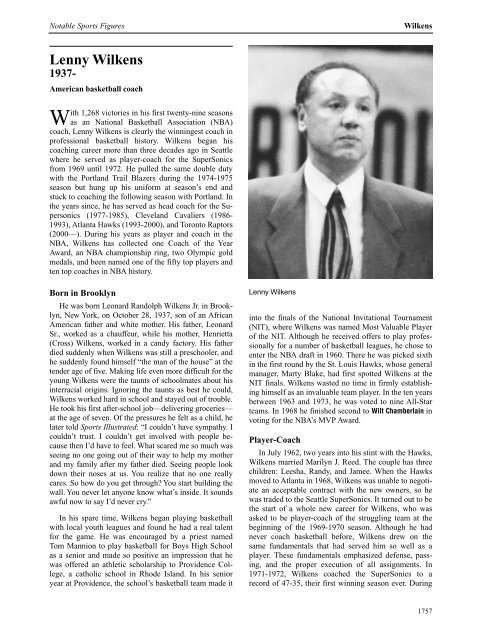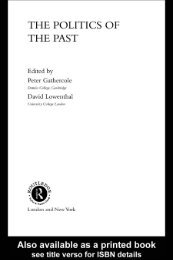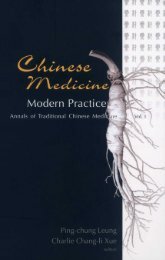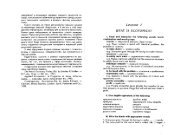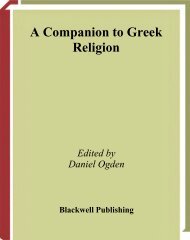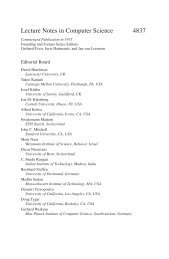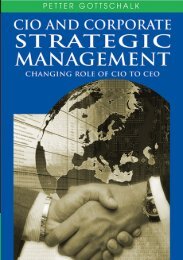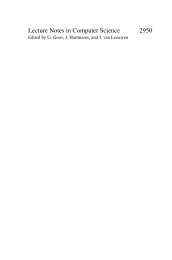Frank Thomas
Frank Thomas
Frank Thomas
Create successful ePaper yourself
Turn your PDF publications into a flip-book with our unique Google optimized e-Paper software.
Notable Sports Figures<br />
Lenny Wilkens<br />
1937-<br />
American basketball coach<br />
With 1,268 victories in his first twenty-nine seasons<br />
as an National Basketball Association (NBA)<br />
coach, Lenny Wilkens is clearly the winningest coach in<br />
professional basketball history. Wilkens began his<br />
coaching career more than three decades ago in Seattle<br />
where he served as player-coach for the SuperSonics<br />
from 1969 until 1972. He pulled the same double duty<br />
with the Portland Trail Blazers during the 1974-1975<br />
season but hung up his uniform at season’s end and<br />
stuck to coaching the following season with Portland. In<br />
the years since, he has served as head coach for the Supersonics<br />
(1977-1985), Cleveland Cavaliers (1986-<br />
1993), Atlanta Hawks (1993-2000), and Toronto Raptors<br />
(2000—). During his years as player and coach in the<br />
NBA, Wilkens has collected one Coach of the Year<br />
Award, an NBA championship ring, two Olympic gold<br />
medals, and been named one of the fifty top players and<br />
ten top coaches in NBA history.<br />
Born in Brooklyn<br />
He was born Leonard Randolph Wilkens Jr. in Brooklyn,<br />
New York, on October 28, 1937, son of an African<br />
American father and white mother. His father, Leonard<br />
Sr., worked as a chauffeur, while his mother, Henrietta<br />
(Cross) Wilkens, worked in a candy factory. His father<br />
died suddenly when Wilkens was still a preschooler, and<br />
he suddenly found himself “the man of the house” at the<br />
tender age of five. Making life even more difficult for the<br />
young Wilkens were the taunts of schoolmates about his<br />
interracial origins. Ignoring the taunts as best he could,<br />
Wilkens worked hard in school and stayed out of trouble.<br />
He took his first after-school job—delivering groceries—<br />
at the age of seven. Of the pressures he felt as a child, he<br />
later told Sports Illustrated: “I couldn’t have sympathy. I<br />
couldn’t trust. I couldn’t get involved with people because<br />
then I’d have to feel. What scared me so much was<br />
seeing no one going out of their way to help my mother<br />
and my family after my father died. Seeing people look<br />
down their noses at us. You realize that no one really<br />
cares. So how do you get through? You start building the<br />
wall. You never let anyone know what’s inside. It sounds<br />
awful now to say I’d never cry.”<br />
In his spare time, Wilkens began playing basketball<br />
with local youth leagues and found he had a real talent<br />
for the game. He was encouraged by a priest named<br />
Tom Mannion to play basketball for Boys High School<br />
as a senior and made so positive an impression that he<br />
was offered an athletic scholarship to Providence College,<br />
a catholic school in Rhode Island. In his senior<br />
year at Providence, the school’s basketball team made it<br />
Lenny Wilkens<br />
into the finals of the National Invitational Tournament<br />
(NIT), where Wilkens was named Most Valuable Player<br />
of the NIT. Although he received offers to play professionally<br />
for a number of basketball leagues, he chose to<br />
enter the NBA draft in 1960. There he was picked sixth<br />
in the first round by the St. Louis Hawks, whose general<br />
manager, Marty Blake, had first spotted Wilkens at the<br />
NIT finals. Wilkens wasted no time in firmly establishing<br />
himself as an invaluable team player. In the ten years<br />
between 1963 and 1973, he was voted to nine All-Star<br />
teams. In 1968 he finished second to Wilt Chamberlain in<br />
voting for the NBA’s MVP Award.<br />
Player-Coach<br />
Wilkens<br />
In July 1962, two years into his stint with the Hawks,<br />
Wilkens married Marilyn J. Reed. The couple has three<br />
children: Leesha, Randy, and Jamee. When the Hawks<br />
moved to Atlanta in 1968, Wilkens was unable to negotiate<br />
an acceptable contract with the new owners, so he<br />
was traded to the Seattle SuperSonics. It turned out to be<br />
the start of a whole new career for Wilkens, who was<br />
asked to be player-coach of the struggling team at the<br />
beginning of the 1969-1970 season. Although he had<br />
never coach basketball before, Wilkens drew on the<br />
same fundamentals that had served him so well as a<br />
player. These fundamentals emphasized defense, passing,<br />
and the proper execution of all assignments. In<br />
1971-1972, Wilkens coached the SuperSonics to a<br />
record of 47-35, their first winning season ever. During<br />
1757


